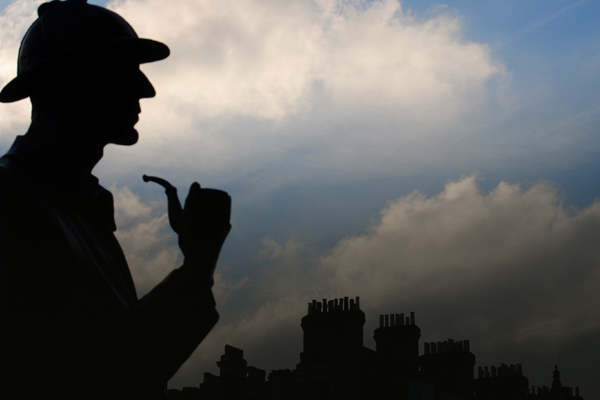
Given the large number of spiritual claims circulating across the globe (and throughout history), why should we conclude one (or any) of them is true until we’ve examined all of them? At first blush, this seems like a reasonable approach, and when it’s asked by a skeptic, it’s typically offered in an effort to expose the inadequate or incomplete nature of my investigation (or some underlying bias I may have against opposing claims). Although I investigated several theistic and atheistic worldviews prior to becoming a Christian, I didn’t examine every view. Is my certainty related to Christianity therefore misplaced? Should the limited nature of my investigation disqualify or temper the case I’m presenting to skeptics and believers? I don’t think so.
In every criminal trial, the investigators and prosecutors are obligated to present the evidence related to one defendant. While the burden of proof lies with the prosecutorial team, the prosecution is not required to have examined every possible alternative suspect. If I am investigating a case in which the suspect was initially described as a white male, 25 to 35 years of age with brown hair, the potential suspect pool in Los Angeles County would be quite large; there may be hundreds of thousands fitting this description. As I make the affirmative case related to one of the men in this large group, I’m under no obligation to make the case against the others. In fact, when the jury evaluates the case and decides whether the defendant is guilty, they will do so without any consideration of the alternatives. If the evidence is strong enough to reasonably infer the defendant’s involvement, the jury will make a confident decision, even though many, many alternatives were left unexamined.
The case for Christianity is made in a similar way. While it may be helpful to examine a particular alternative worldview on occasion to show its inadequacies or errors, these deficiencies fail to establish Christianity as factual. How can you trust Christianity is true if you haven’t examined all the alternatives? The case for the Christian worldview must first be made affirmatively even if no other claim is examined negatively. If there’s enough evidence to reasonably infer Christianity is true, we needn’t look any further. The affirmative case will either stand or fall on its own merit, even if we’re unable to examine any other “suspect”. The Christian worldview does not require “blind faith”. In fact, Jesus repeatedly presented evidence to support His claims of Deity. Share on X
The Christian worldview does not require “blind faith”. In fact, Jesus repeatedly presented evidence to support His claims of Deity and when John the Baptist expressed doubt, Jesus responded with yet another evidential display of His power. Christians are not asked to believe without evidence (or worse yet, in spite of the evidence), but to instead place their trust in the most reasonable inference from the evidence, even though there may still be several unanswered questions. Christianity is evidentially reasonable, even if we are unable to examine every possible alternative.

J. Warner Wallace is a Dateline featured Cold-Case Detective, Senior Fellow at the Colson Center for Christian Worldview, Adj. Professor of Christian Apologetics at Talbot School of Theology, Biola University, author of Cold-Case Christianity, God’s Crime Scene, and Forensic Faith, and creator of the Case Makers Academy for kids.
Subscribe to J. Warner’s Daily Email
J. Warner Wallace is a Dateline featured cold-case homicide detective, popular national speaker and best-selling author. He continues to consult on cold-case investigations while serving as a Senior Fellow at the Colson Center for Christian Worldview. He is also an Adj. Professor of Christian Apologetics at Talbot School of Theology, Biola University, and a faculty member at Summit Ministries. He holds a BA in Design (from CSULB), an MA in Architecture (from UCLA), and an MA in Theological Studies (from Gateway Seminary).

































Pingback: J. Warner Wallace: how can you trust Christianity if you haven’t tested all the alternatives | Wintery Knight
Pingback: Apologetics Roundup 03/22 – 03/29 | Hope's Reason